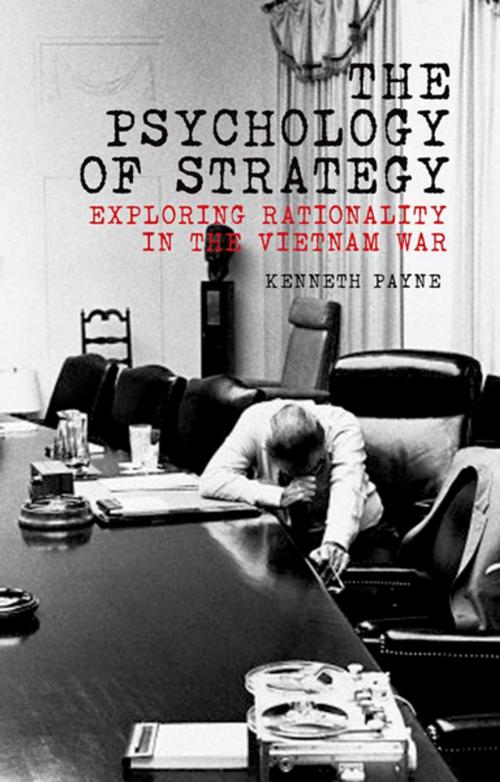The Psychology of Strategy
Exploring Rationality in the Vietnam War
Nonfiction, History, Military, Vietnam War, Asian, Health & Well Being, Psychology, Social Psychology| Author: | Kenneth Payne | ISBN: | 9780190613259 |
| Publisher: | Oxford University Press | Publication: | May 15, 2015 |
| Imprint: | Oxford University Press | Language: | English |
| Author: | Kenneth Payne |
| ISBN: | 9780190613259 |
| Publisher: | Oxford University Press |
| Publication: | May 15, 2015 |
| Imprint: | Oxford University Press |
| Language: | English |
How do strategists decide what they wish to achieve through war, and how they might accomplish it? And why does their understanding of violence regularly turn out to be wrong? In seeking answers to these questions Kenneth Payne draws on the study of psychology to examine strategic behaviour during the Vietnam War. He explores the ways in which cognitive biases distort our sense of our own agency and our decision-making, arguing that much of the latter is emotional, shaped by unconscious processing and driven by a prickly concern for social esteem. The Nixon and Johnson administrations both proved susceptible to the processes that are familiar to students of modern neuroscience and psychology, but perhaps less appreciated within strategic studies. US strategists in the Vietnam era miscalculated in ways that would surprise rational theorists, but not evolutionary psychologists: they exaggerated the stakes, embraced risky and overly optimistic solutions, and failed to appreciate the limits of force to shatter the enemy's resolve. Their concern for reputation led to escalation, based on a flawed conception of what such escalation could achieve. The Vietnam conflict provides an excellent illustration that war is an inherently psychological phenomenon. This challenges abstract notions of rationality in strategic affairs, suggesting that the strategists -- much like the rest of us -- are strangers to themselves.
How do strategists decide what they wish to achieve through war, and how they might accomplish it? And why does their understanding of violence regularly turn out to be wrong? In seeking answers to these questions Kenneth Payne draws on the study of psychology to examine strategic behaviour during the Vietnam War. He explores the ways in which cognitive biases distort our sense of our own agency and our decision-making, arguing that much of the latter is emotional, shaped by unconscious processing and driven by a prickly concern for social esteem. The Nixon and Johnson administrations both proved susceptible to the processes that are familiar to students of modern neuroscience and psychology, but perhaps less appreciated within strategic studies. US strategists in the Vietnam era miscalculated in ways that would surprise rational theorists, but not evolutionary psychologists: they exaggerated the stakes, embraced risky and overly optimistic solutions, and failed to appreciate the limits of force to shatter the enemy's resolve. Their concern for reputation led to escalation, based on a flawed conception of what such escalation could achieve. The Vietnam conflict provides an excellent illustration that war is an inherently psychological phenomenon. This challenges abstract notions of rationality in strategic affairs, suggesting that the strategists -- much like the rest of us -- are strangers to themselves.















